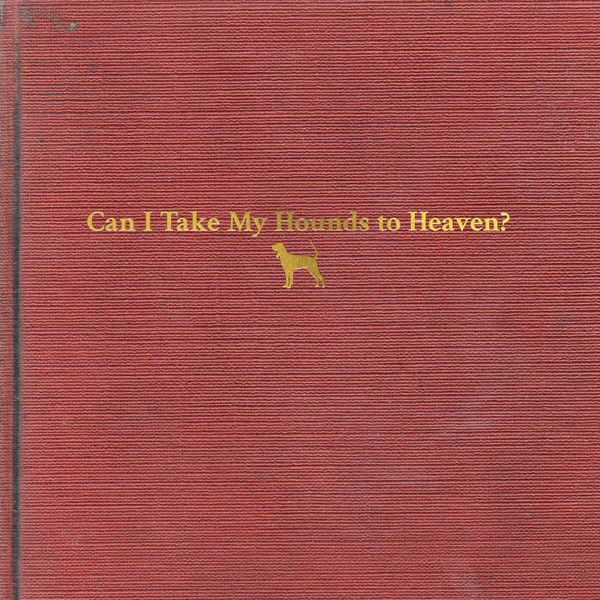I learned how to sing growing up Catholic in Kentucky. Perched on a kneeler with the first edition of Glory & Praise balanced on the pew in front of me, I joined in with the hymns as best I could. I watched my dad at the piano and dreamed about standing up front with the choir. My experience of church was different from most of my classmates who worshiped with the Baptists or at the Assembly of God. Our pastor was raised in the Church of God in Christ and preached like a Holiness Pentecostal, but folks only stood in the aisle or made a break for the altar when it was time for communion.
All the same, I still get a wistful feeling every time I hear the opening lines of Tyler Childers’s song, “Shake the Frost.” His voice breaks with emotion as he sings “You remind me of a Sunday back home in old Kentucky / With the church choirs just belting to the pines.” The verse isn’t just a bit of local color—Childers has spent much of his songwriting working out his relationship with faith. From the skepticism of his debut album, Bottles and Bibles, to his tongue-in-cheek moping about Catholic girls and Free Will boys on Purgatory, he is no stranger to singing about religion. On his latest album, Can I Take My Hounds To Heaven?, the Gospel is the whole thing.
With cover art that evokes a gently used hymnal, it is no surprise that the songs inside are not so much about religion as they are the practice of it. The praise is profound. On “Angel Band,” he sings “I can hear the angel band / I was blind but now I see / And I’ll jump right in amongst ‘em when I reach the glory land,” lyrics that would hardly be out of place in any Sunday service worth its salt. And at nearly two hours, you finish the album like you’re walking out of church—a little dazed and a lot consoled.
While only eight songs long, Childers recorded three different versions of each one on the album, a decision that seems as spiritual as it is musical. It evokes the discipline of repetition, of going over a prayer experience a second or third time, looking to dig out all the grace you can. HE is teasing apart his music for the attentive listener, inviting them to listen again, not for something new but for something deeper.
In the meantime, Childers is exploring the limits of country and gospel as genres. There is plenty on the album well within those traditions, including acclamations of “Hallelujah!” on “Angel Band” and an unaccompanied quartet introduction to “Way of the Triune God.” The importance of the music’s roots is even more evident in the song’s lyric video. Composed of footage of Eastern Kentucky church services taken from the archives of Appalshop, the power and diversity of the Appalachian Christian tradition is on full display. The Hammond organ that opens the album is as unmistakable as it is storied, but Childers never lets the tracks become a museum—the pews in Hickman Holler are anything but dusty.
On “Two Coats – Jubilee Version,” Childers mixes the Old Regular Baptist tradition of lined-out hymn singing with an electric guitar riff and a simple drumbeat. Unusually, he introduces a wide range of samples throughout the album—clips from The Andy Griffith Show, archival interviews from folkways projects, narration from a made-for-TV documentary about Appalachia that predictably mispronounces Appalachia. The third and final iteration of each of the songs dispense with lyrics and colorfully mix elements of blues electro swing, trap, bluegrass, and Southern gospel, at least. The final effect is not ironic pastiche but, as Childers describes it himself, a true joyful noise.
Tyler Childers’s authenticity is evident. In a current country music scene where generic Christianity serves as little more than cultural window dressing alongside worn-out tropes like backroads and blue jeans, his devotion is strikingly real. He covers Hank Williams Sr.’s “The Old Country Church” not because he believes he is good enough to (although he certainly is), but because he believes what the song says. The Kingdom of God is real and expansive, but it is also simple and out-of-the-way. There is no broad road leading to it and there is no cheap grace.
Along these lines, the title track, “Can I Take My Hounds To Heaven?”, is as much a playful metaphysical question as it is sincere apprehension. Childers is inviting us to consider what we might need to give up for the sake of the Gospel. He sings, as he has on earlier albums, about our sinful attachments, be they dependence on whiskey, pills, or covetousness for lovers long gone. But there’s more at stake—Childers wants us to confront our religious bigotry, our racism and xenophobia, our failures to love one another well. As he did on 2020’s Long Violent History, he offers white folks (and more particularly white Christians) an invitation to contemplation and compassion. “She’s took a walk with Jesus, she’s touched his nail-scarred hands / It didn’t even bother her that he ain’t a blue-eyed man,” he sings on “Angel Band.” Once we’ve met Jesus in the faces of our neighbors, we can’t ignore their wounds. We have all without exception been invited to join in the joyful noise of the great jubilee, and Tyler Childers has spent all Sunday morning making sure we can hear it.
-//-
Listen to Can I Take My Hounds to Heaven on Spotify | Apple Music or wherever you get your music.


